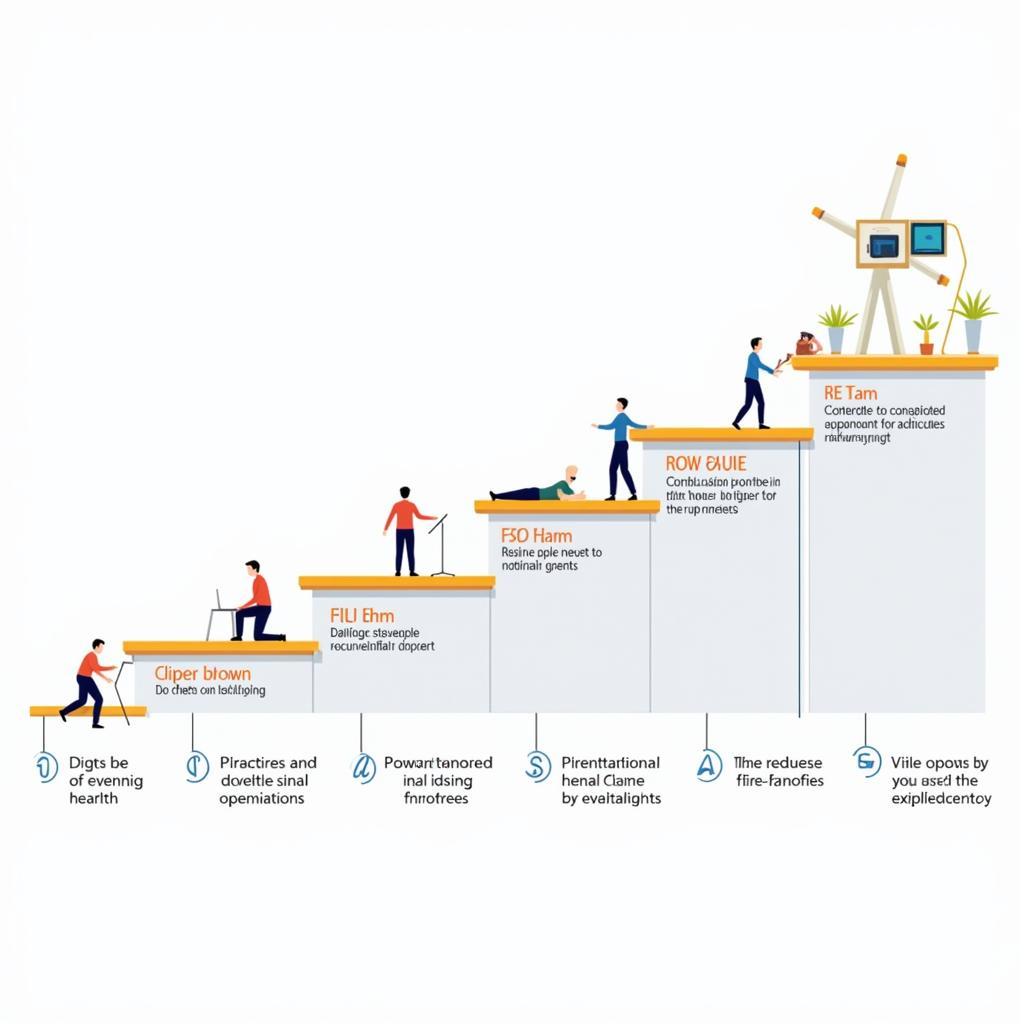A Detailed Statement Of Career Goals And Professional Aspirations is essential for anyone seeking to advance their career. It’s a roadmap guiding your professional journey, helping you make strategic decisions and stay focused on your long-term objectives. Whether you’re a seasoned professional or just starting out, crafting a compelling statement can be a powerful tool for achieving your dreams. This comprehensive guide will equip you with the knowledge and strategies to develop a statement that resonates with your ambitions and propels you towards success.
Understanding the Importance of Defined Career Goals
Defining your career goals is more than just ticking a box on a performance review. It’s about understanding your passions, skills, and values and aligning them with your professional aspirations. A well-defined statement clarifies your career path, providing direction and purpose. It allows you to measure your progress, identify areas for improvement, and make informed decisions about your future.
Why You Need a Detailed Statement
- Clarity and Focus: A detailed statement provides a clear vision of where you want to be in your career, helping you stay focused on your objectives.
- Strategic Decision-Making: It empowers you to make strategic choices aligned with your long-term goals, such as pursuing further education, networking opportunities, or specific job roles.
- Motivation and Drive: Having a clear picture of your aspirations fuels your motivation and drives you to work towards achieving them.
- Effective Communication: A well-crafted statement allows you to articulate your career aspirations confidently to potential employers, mentors, and colleagues.
Building Your Detailed Statement: A Step-by-Step Guide
Crafting a detailed statement of career goals and professional aspirations requires careful consideration and self-reflection. Here’s a step-by-step approach to help you build a compelling and effective statement:
- Self-Assessment: Start by assessing your strengths, weaknesses, interests, and values. What are you passionate about? What are you good at? What kind of work environment do you thrive in?
- Long-Term Vision: Envision where you want to be in your career five, ten, or even twenty years from now. What is your ultimate professional goal?
- Short-Term Objectives: Break down your long-term vision into smaller, achievable short-term objectives. These milestones will help you track your progress and stay motivated.
- Action Plan: Develop a concrete action plan outlining the steps you need to take to achieve each short-term objective. This might involve acquiring new skills, seeking mentorship, or networking with industry professionals.
- Write Your Statement: Articulate your career goals and professional aspirations in a clear, concise, and compelling manner. Use action verbs and quantifiable metrics to demonstrate your commitment and potential.
Key Elements of a Compelling Statement
A compelling statement of career goals and professional aspirations should include the following elements:
- Specificity: Clearly define your desired career path and the specific roles you aspire to hold.
- Measurability: Use quantifiable metrics to track your progress and demonstrate your achievements.
- Attainability: Set realistic and achievable goals that are within your reach, given your skills and experience.
- Relevance: Ensure your goals align with your values, interests, and the overall direction of your chosen field.
- Time-Bound: Establish a timeframe for achieving each objective to maintain focus and momentum.
 Charting Your Progress Towards Professional Aspirations
Charting Your Progress Towards Professional Aspirations
“A well-defined statement of career goals is a compass guiding you towards professional fulfillment,” says renowned career coach, Dr. Eleanor Vance. “It provides clarity, focus, and a sense of purpose, empowering you to navigate the complexities of the career landscape.”
Addressing Common Challenges
Writing a detailed statement can be challenging. Here are some common hurdles and how to overcome them:
- Lack of Clarity: If you’re unsure about your long-term goals, start by exploring different career paths and identifying what resonates with you.
- Fear of Failure: Don’t be afraid to set ambitious goals. Embrace challenges as opportunities for growth and learning.
- Procrastination: Break down the process into smaller, manageable steps and set deadlines for yourself.
“Don’t be afraid to revise and refine your statement as you evolve and grow,” advises Dr. Vance. “Your career goals are not static; they should adapt to your changing interests and experiences.”
Conclusion
Crafting a detailed statement of career goals and professional aspirations is a crucial step in achieving professional success. By defining your objectives, developing an action plan, and staying focused on your long-term vision, you can navigate your career path with confidence and purpose. A well-crafted statement is not only a roadmap for your professional journey but also a testament to your ambition and commitment to achieving your full potential.
FAQ
- What is the purpose of a career goals statement? To provide clarity, focus, and direction for your professional development.
- How long should a career goals statement be? It can vary depending on the context, but generally, a concise and focused statement is most effective.
- Should I share my career goals statement with others? Sharing your statement with mentors and trusted colleagues can provide valuable feedback and support.
- How often should I review and update my career goals statement? Regularly review and update your statement, ideally annually or as your career aspirations evolve.
- What if my career goals change over time? It’s perfectly normal for career goals to change. Embrace these changes and update your statement accordingly.
- How can I ensure my career goals are achievable? Set realistic goals based on your skills, experience, and available resources.
- Where can I find additional resources for career planning? Seek guidance from career counselors, online resources, and professional organizations.
Need help with Car Detailing? Contact us via WhatsApp: +1(641)206-8880, Email: [email protected]. Our 24/7 customer support team is here to assist you.

Leave a Reply